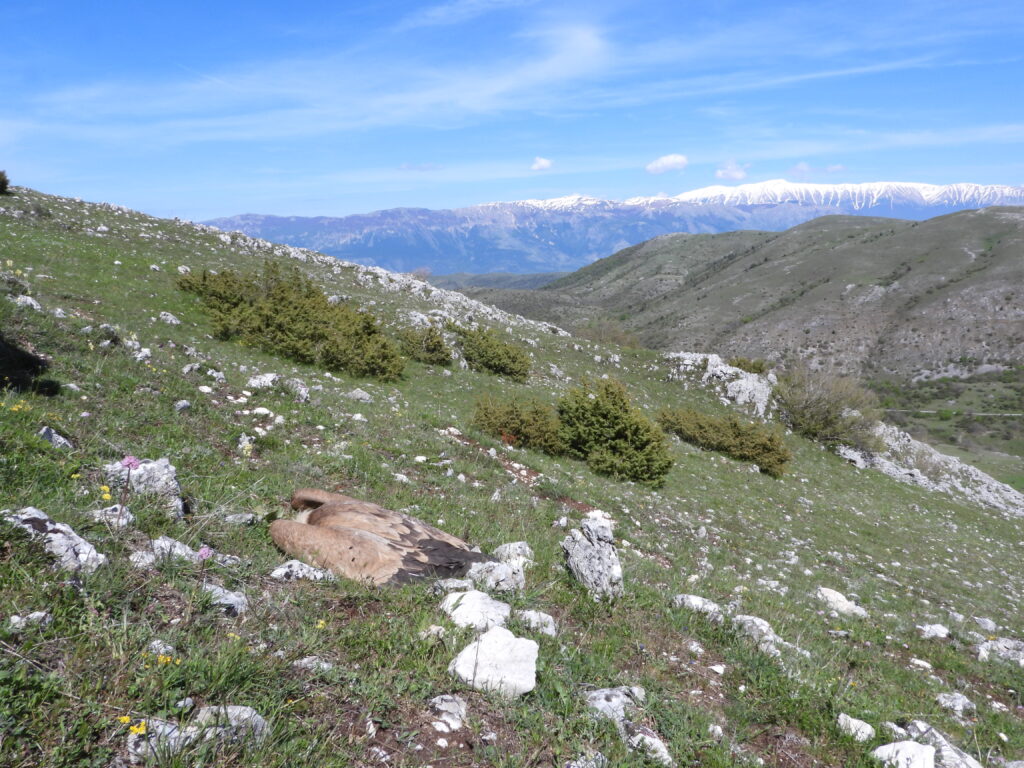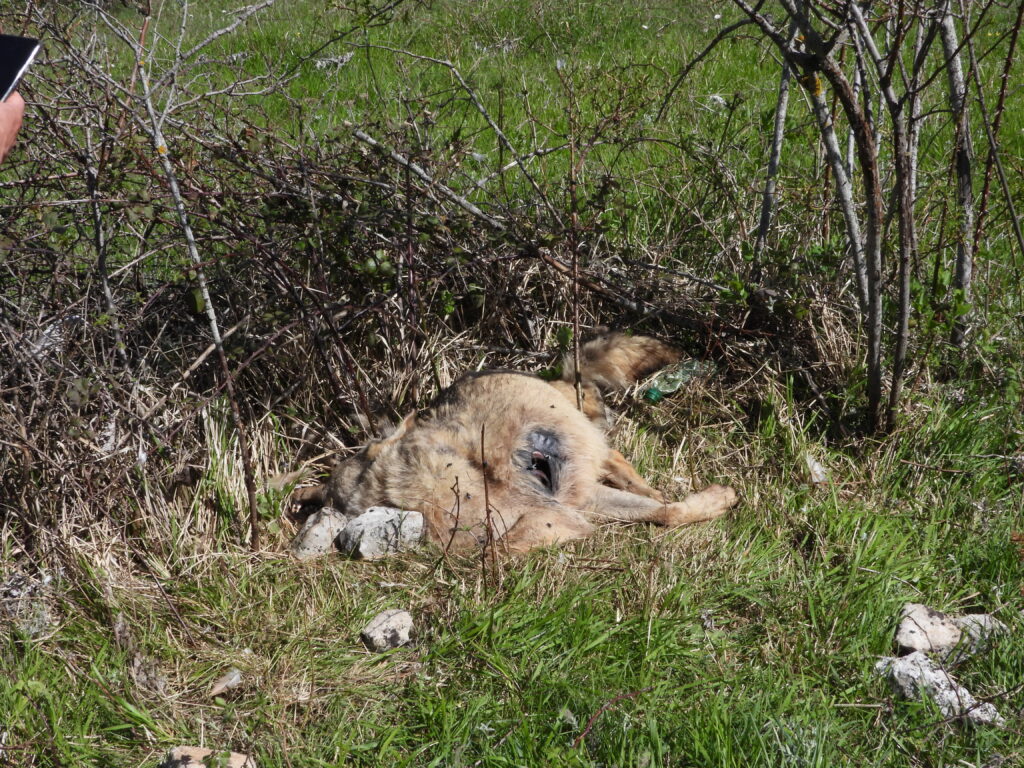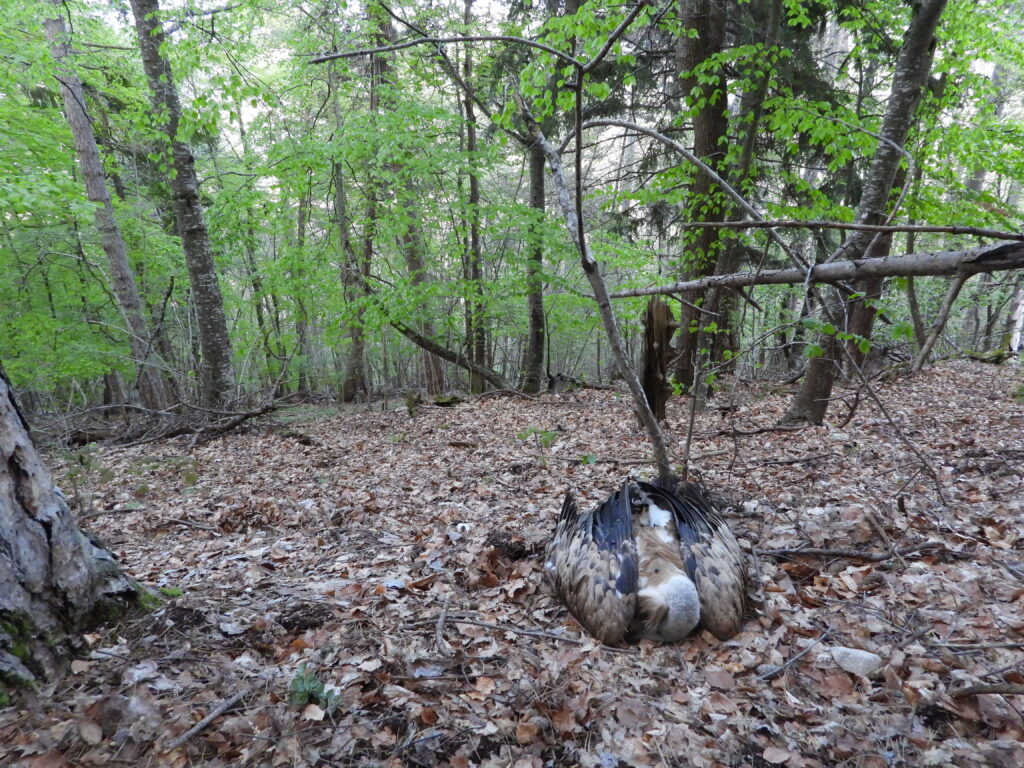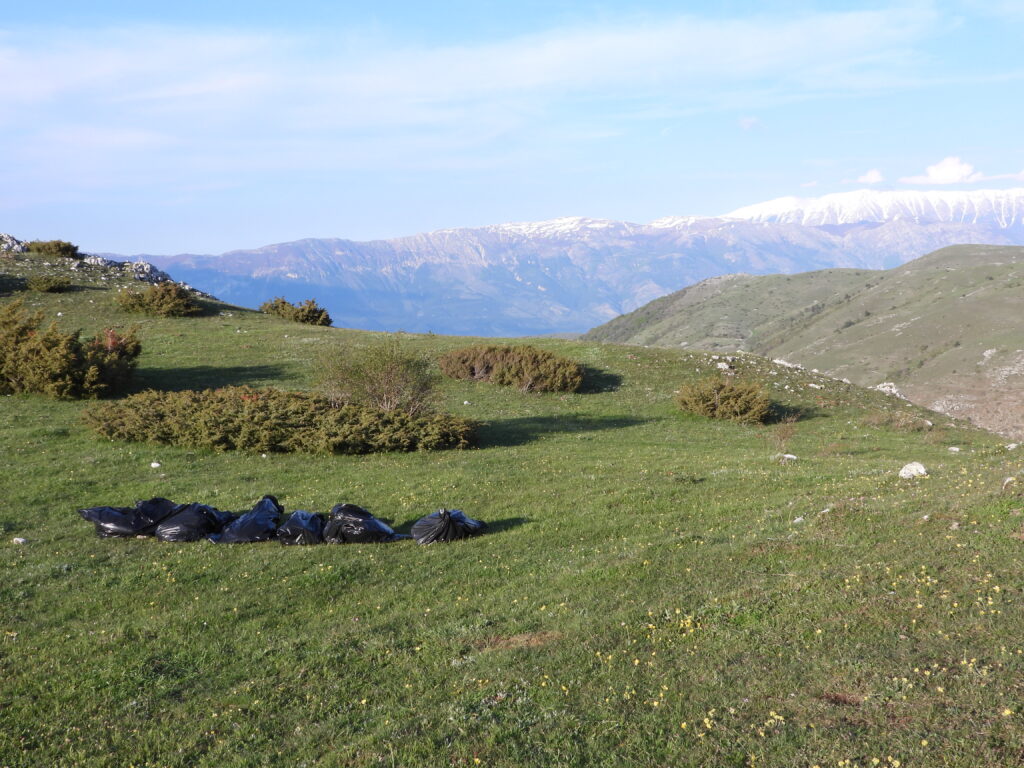There is no end to the indignation at the discovery of wild animals that have most likely been poisoned by real criminals.

On 5th May the staff of Rewilding Apennines, of Salviamo l’Orso and the volunteers during a monitoring activity in the corridor area between the Abruzzo, Lazio and Molise National Park and the Sirente Velino Regional Natural Park found 2 wolves and 4 dead Griffon vultures in the territory of Cocullo, on the border with Goriano Sicoli, but the number could be higher.
Since the carcasses are within a radius of 300 metres, there is a strong suspicion that it is an episode of poisoning, one of the many that occur in the Central Apennines in the period preceding the monticazione (the driving of cattle to high-altitude pastures), as well as to those related to competition between truffle pickers and hunting activities.
Following the report, the Forest Carabinieri of the Roccaraso Command Station and the veterinarian of Local Health Authority n. 1 L’Aquila-Sulmona-Avezzano intervened on the spot. The latter gave the authorization to remove the carcasses to prevent other animals from dying by feeding on them.
In the following days, the anti-poison dog units of the Abruzzo, Lazio and Molise National Park intervened to check the area, verify the presence of other dead animals and make it safe. Unfortunately, the dog unit of Pescasseroli has found another wolf carcass.

Just two weeks ago the Rewilding Apennines team had recovered two Griffon vultures in Atina, in collaboration with the Forestry Carabinieri of Atina and the Local Health Authority of Frosinone – District of Sora. The animals were found dead not far from the carcass of a foal on which they had probably fed. Also, two years ago, again in the spring, Rewilding Apennines reported another serious episode of poisoning, even that time in the area between Cocullo and Goriano Sicoli.
Mario Cipollone, the team leader of Rewilding Apennines, who participated in the operations to find and recover the carcasses, declared: “It is embarrassing to note that in 2023 the culture of poison is still so widespread, highlighting the most total insensitivity towards life on the part of those who resort to certain cowardly practices. During the painful discovery and recovery of the carcasses, a deep feeling of shame could not be missing for these cruel and useless gestures which do not favor the possible coexistence with the wildlife, but instead harm the environment in which the perpetrators themselves carry out their activities. These people do not understand that in doing so they damage themselves and the image of the communities to which they belong, alienating those who appreciate the naturalistic values of the places they should really be the caretaker of.
While awaiting definitive confirmation of the cause of death following the necropsy and toxicological analyses, carried out by the Zooprophylactic Institute of Abruzzo and Molise, it is important to underline the fundamental role that Griffon vultures play in revealing poisoning events. In fact, these forced scavengers are real sentinels of the territory and the monitoring of the Griffon vultures equipped with a GPS transmitter, conducted by Rewilding Apennines and Carabinieri Biodiversity of Castel di Sangro, can also allow the discovery of any dangerous situations, therefore activating the entire protocol to stop the chain of death of fauna and reclaim the area.

“Unfortunately, if these acts go unpunished, there is a risk of favoring the repetition of the crime,” says Cipollone. “Aware of the complexity of conducting police investigations into this crime, we appeal to all the competent authorities to give greater attention and priority to this scourge of our territory at an institutional and procedural level. It would be a good sign if any long-term productive activity were prohibited in areas prone to poisoning, as happens in the case of fires.”
On 5th May, a bear excrement was also found near the carcass of a Griffon vulture, certainly older than the animal’s death. This is enough to remind us that even the lives of the Marsican bears that move along that ecological corridor, which is essential for movement and the expansion of the small plantigrade population, is seriously endangered by episodes of poisoning.
For the young volunteers who participated in the search and removal of the carcasses, it was a very emotional experience. Lola Ratouis, from Chamonix Mont-Blanc in France, said: “When I came to volunteer for Salviamo l’Orso and Rewilding Apennines, I knew I was going to face difficult situations like the death of wild animals that I admire and respect. But I didn’t expect to face it like this… Six plastic bags representing the loss of six essential life for the ecosystem of the Abruzzo. Two days have passed now, and I still don’t know what made me the saddest, the view of those two wolves and four vultures dead next to each other, or the sad look in the eyes of the people who fights for the preservation of wildlife every single day, with or against the wind.”

The hope is that the local Apennine communities can become promoters of the culture of human-wildlife coexistence and not of the culture of poison, because while the former brings widespread benefits from ecological, social, economic and well-being points of view, the second drags with it only disadvantages and disasters for the environment, the promotion and hospitality for the territory and the development prospects for the future.